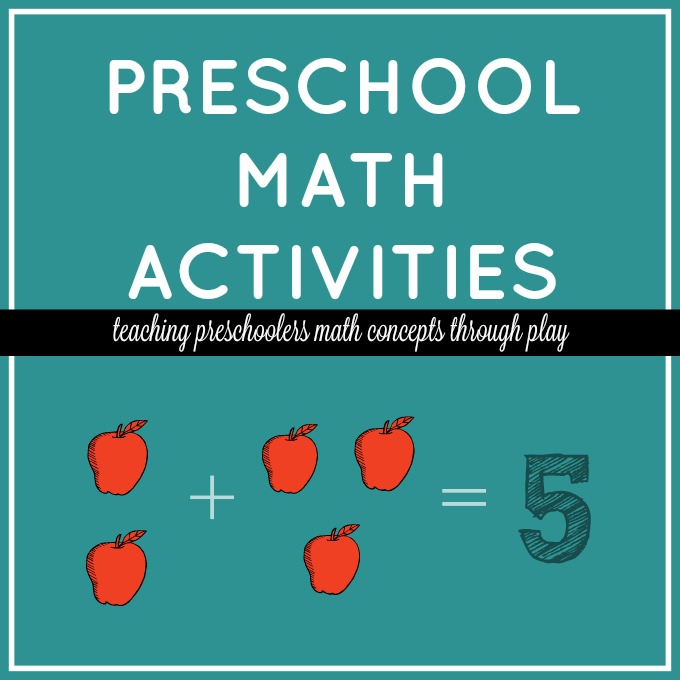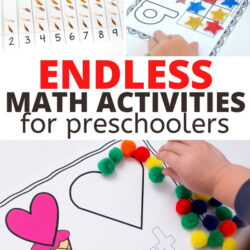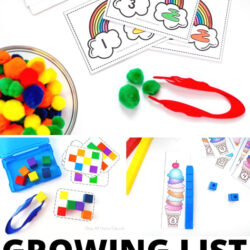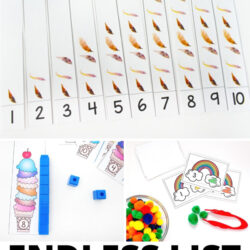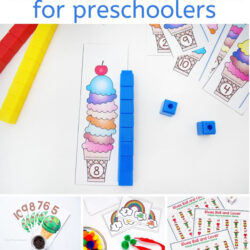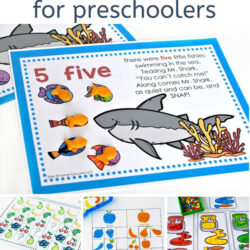Developing mathematics skills begin long before children enter formal schooling. This is why choosing out which preschool math activities to include in your lesson plans are all the more important.
In fact, preschool and toddler aged children are constantly playing with math. They naturally sort and organize. They build and design. These are mathematical skills children have a natural interest in and their beginning development comes through the very natural act of playing.
It is all good and well to say that math skills develop naturally, but young children also benefit from purposeful preschool math activities.
The 5 Disciplines of Preschool Math Activities Instruction
Teaching math to preschoolers isn’t about doing endless preschool math worksheets. Learning activities should be hands-on and engaging, while targeting important number skills.
But preschool mathematics is more than just teaching counting and number identification. There are five disciplines in mathematics, which are taught in the following units:
Number Sense
Graphing
Measurement
Patterning
Shapes
Sorting
-
Product on sale
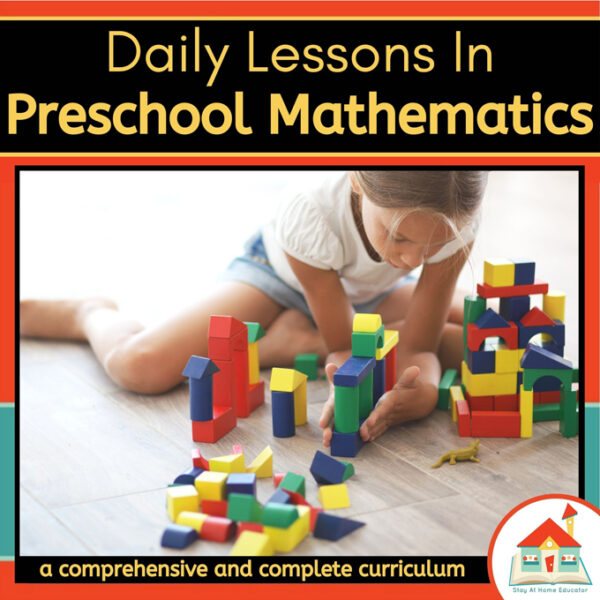 *** Daily Lessons in Preschool Mathematics CurriculumOriginal price was: $135.00.$99.00Current price is: $99.00.
*** Daily Lessons in Preschool Mathematics CurriculumOriginal price was: $135.00.$99.00Current price is: $99.00.
What to Teach in Preschool Math
Not sure what math skills you should include in your preschool math lesson plans? Or what kind of preschool math activities you should include? Grab a free checklist below.
How to Teach Math to Preschoolers
Young children love to play with mathematics, and through play is where some of the strongest mathematical connections will be made. These connections will provide them with the right foundation to learn formal math with ease.
A highly effective approach is through guided play.
In this setup, teachers intentionally design the learning environment with distinct mathematical goals in mind. For instance, a teacher might arrange a play scenario with blocks that children can count, sort by color, or arrange by size.
While the teacher subtly directs the play towards these objectives, it’s also essential to give the children room to explore, make discoveries, and learn at their own pace.
The greatest success in teaching math to preschoolers is always met by using a systematic and sequential math lesson plan. Such a plan should encompass the five disciplines of math, which are number sense, algebra, geometry, measurement, and data analysis.
Math Disciplines Explained
All mathematics skills are summed up into five disciplines or domains. They are not just for high school students, or middle school, or just for elementary students. The five disciplines of math also apply to preschoolers.
It may sound intimidating, but it doesn’t have to be. The instruction in all five disciplines is absolutely necessary to give preschoolers the best beginning possible in mathematics. They are:
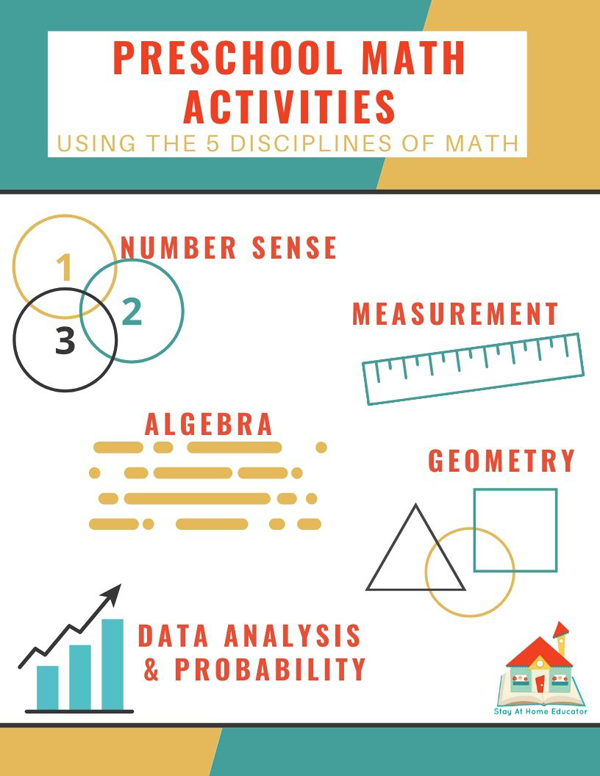
You might be thinking, “Seriously, I supposed to teach algebra to preschoolers?!”
Well, yes, but if you stop to think about it, teaching all five disciplines is easier than you think. And it is easy to make it developmentally appropriate for preschoolers, too! And, it is completely necessary for a complete and well-rounded preschool education.
Disciplines of Math Examples in Early Childhood
Think about it like this: the following are some basic strands within each discipline.
- counting, number identification, addition and subtraction (number sense)
- patterns, comparing and sorting (algebra)
- shape identification, shape differentiation (geometry)
- comparing sizes, lengths and weights (measurement)
- graphing, simple estimation (data analysis)
To learn more about each domain, and to see way preschool math activities that fit within each, click the following links:
Number Sense Activities for preschoolers
Algebra Activities for preschoolers
Geometry Activities for preschoolers
Measurement Activities for preschoolers
Data Analysis Activities for preschoolers
Pre K Math Skills Checklist
Take the guesswork out of how to teach math with this free preschool math skills checklist. Just click the image and a pdf will be sent to your email.
Preschool Math Curriculum
Having printable number cards, play dough mats, and other number activities for the entire year makes planning your preschool math centers even easier! Practice number matching and identification along with fine motor skills.
-
Product on sale
 *** Daily Lessons in Preschool Mathematics CurriculumOriginal price was: $135.00.$99.00Current price is: $99.00.
*** Daily Lessons in Preschool Mathematics CurriculumOriginal price was: $135.00.$99.00Current price is: $99.00.
